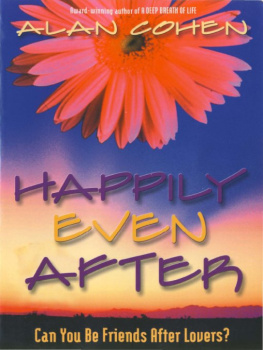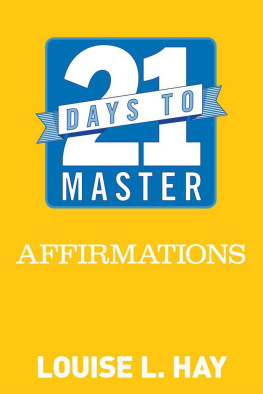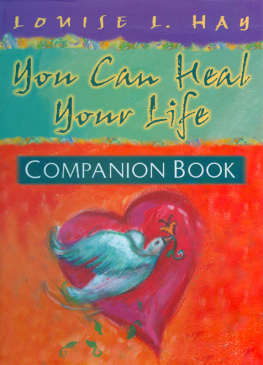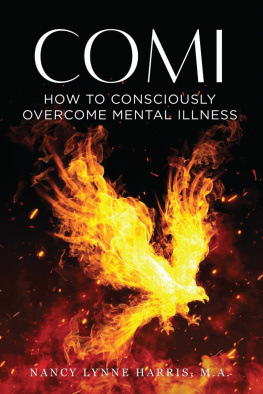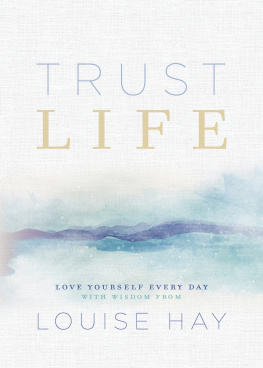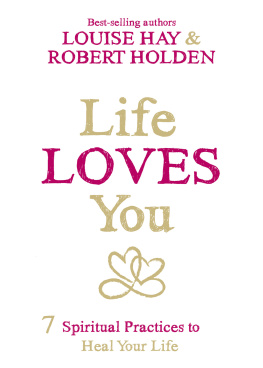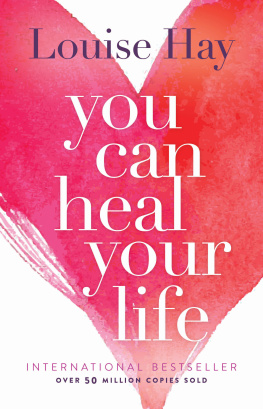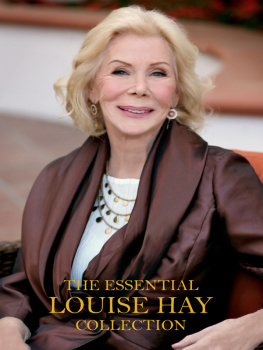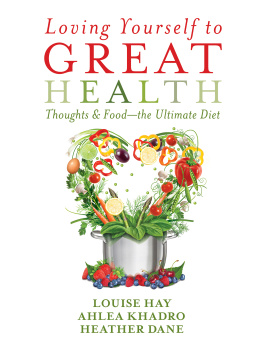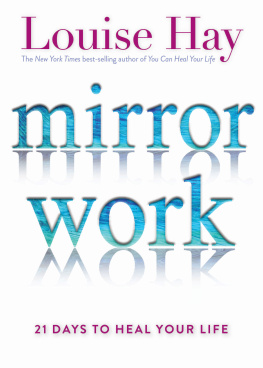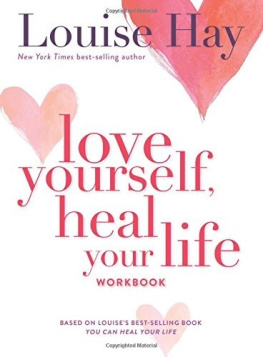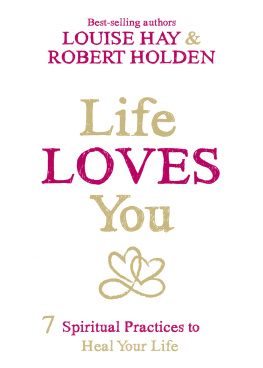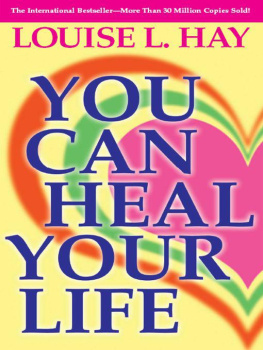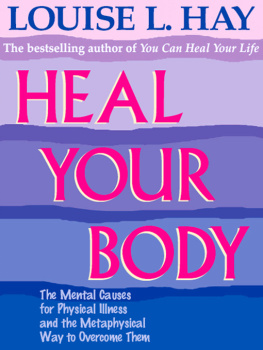Happily
Even
After
BY ALAN COHEN
Books
Are You As Happy As Your Dog?
Dare to Be Yourself
A Deep Breath of Life
The Dragon Doesnt Live Here Anymore*
Handle with Prayer*
Have You Hugged a Monster Today?
I Had It All the Time*
Joy Is My Compass
Lifestyles of the Rich in Spirit
The Peace That You Seek
Rising in Love
Setting the Seen
* Also available as an audio book
Audiocassettes
Deep Relaxation
Eden Morning
I Believe in You
Journey to the Center of the Heart (also a CD)
Living from the Heart
Peace
Videocassette
Wisdom of the Spirit
(All of the above are available through Alan Cohen Publications:
800-462-3013 or
Hay House, Inc.: 800-654-5126.)
Please visit the Hay House Website at: www.hayhouse.com and
Alan Cohens Website at: www.alancohen.com
Happily
Even
After
Can You Be Friends After Lovers?

Alan Cohen

Hay House, Inc.
Carlsbad, CA
Copyright 1999 by Alan Cohen
Published and distributed in the United States by:
Hay House, Inc., P.O. Box 5100, Carlsbad, CA 92018-5100
(800) 654-5126 (800) 650-5115 (fax)
Editorial: Jill Kramer Design: Rene G. Nol
All rights reserved. No part of this book may be reproduced by any mechanical, photographic, or electronic process, or in the form of a phonographic recording; nor may it be stored in a retrieval system, transmitted, or otherwise be copied for public or private useother than for fair use as brief quotations embodied in articles and reviews without prior written permission of the publisher.
The material in the book is directed toward individuals or couples who have already divorced or separated, or who are in the process of doing so. The intention of this work is to offer such readers wisdom, inspiration, and techniques to create a happier and healthier relationship with their former partners. This book is in no way intended to encourage any reader to leave a marriage or relationship prematurely or irresponsibly. Any reader considering leaving a marriage or relationship should engage in personal introspection and/or seek the advice of a counselor or qualified professional before doing so.
All of the stories in this book are true. To honor the privacy of the writers and their former partners, most of the names have been changed, as well as some minor identifying details.
Note to readers: In the interest of gender sensitivity, the author alternates
between the use of male and female pronouns throughout the book.
Library of Congress Cataloging-in-Publication Data
Cohen, Alan.
Happily even after : can you be friends after lovers? / Alan Cohen.
p. cm.
ISBN 1-56170-629-9 (trade pbk.)
1. Divorce-Psychological aspects. 2. Divorced people
psychology. 3. Man-woman relationships. I. Title.
HQ814.C64 1999
306.89-dc21
99-27904
CIP
ISBN 1-56170-629-9
02 01 00 99 4 3 2 1
First Printing, August 1999
Printed in the United States of America

To the couples who believe in love,
with deep appreciation for those
who have shared their stories here.


The holiest spot on earth
is where an ancient hatred
has become a present love.
A Course in Miracles


W hile driving through San Francisco late one night, I happened upon a radio station that played songs requested by callers. A young woman named Carol asked that a particular song be played for a fellow named Eddie.
And who is Eddie? asked the DJ, a mature woman with a sultry voice perfectly suited for late-night radio and romance.
Eddie is my husband, the caller answered, actually, my soon-to-be ex-husbandhes leaving our marriage.
Then why would you want to dedicate a song to him? the DJ retorted, her voice abruptly shifting from seductress to intimidator.
Because I want him to be happy, and I want to stay friends with him always.
You want to stay friends with a guy who ruined your life?
He didnt ruin my life, Carol answered firmly. We had a lot of wonderful times together, and even though we are going our separate ways, we care about each other. Thats why Im dedicating this song to him.
Oh, all right, the DJ answered with a sigh of surrender. The song began to play.
As I made my way along Route 101 in the quiet of the night, it occurred to me that this conversation symbolized two very different approaches to relationship: one that has dominated our culture for as long as I can remember, and one that feels new and even radical. The old way is based on the belief that when a relationship ends, it was a failure because it did not turn into a marriage or the marriage did not fulfill its until death do us part vow. One person is cast as a villain, and the other a victim. Blame is hurled back and forth until the two peoplewho once adored each otherturn their backs on one another, or one person pines endlessly for his or her lost soulmate. If the couple divorces, brutal warfare ensues over property settlements, alimony, and child custody. Then both people go on to create the same relationship with the next partner, who promises to be different but turns out to be the same, or is different but just as bad or worse. Meanwhile, both partners struggle to pick up the pieces of their broken lives, and perhaps enter therapy to try to figure out, Why am I so screwed up?
Can this really be the way we were meant to live? Must heartbreak and enmity be the natural end products of love? Or is there another way in which we can approach relationship parting that bestows us with strength and empowerment rather than pain and sadness?
Yes, there is. The way in which Carol chose to end her relationship is called Big Love. The purpose of a Big Love relationship is to open, learn, grow, discover more about who we are, enjoy the unique riches we bring to each other, and expand as spiritual beings. Big Love defines the success of a relationship not by the weight of the diamond in an engagement ring or how long the marriage lasts, but by the quality of aliveness we experience while the relationship thrives. Big Love recognizes that how we part is as important as how we were together; that love and harmony are more important than being right; and that mutual support is more vital than sex, romance, or even staying together. Big Love acknowledges that our happiness does not hinge on the actions of another person, but proceeds from a Source deep inside us. No matter what a mate does for or against us, we always have the power to choose loveperhaps not always the romantic love that we were taught to pursue, but a higher and greater spiritual love that endures forever.
Those who practice Big Love understand one crucial principle that is painfully absent in its more popular yet more limiting relative, shaky love:
Next page
